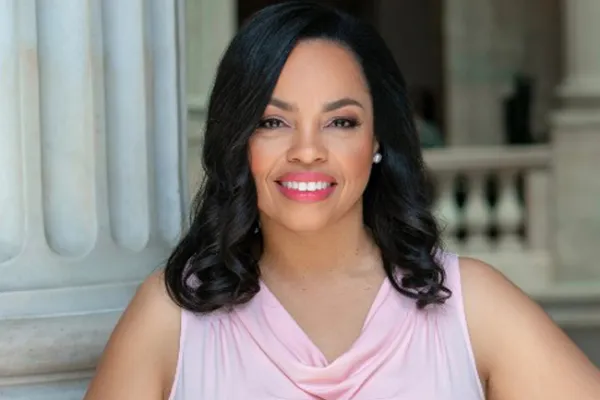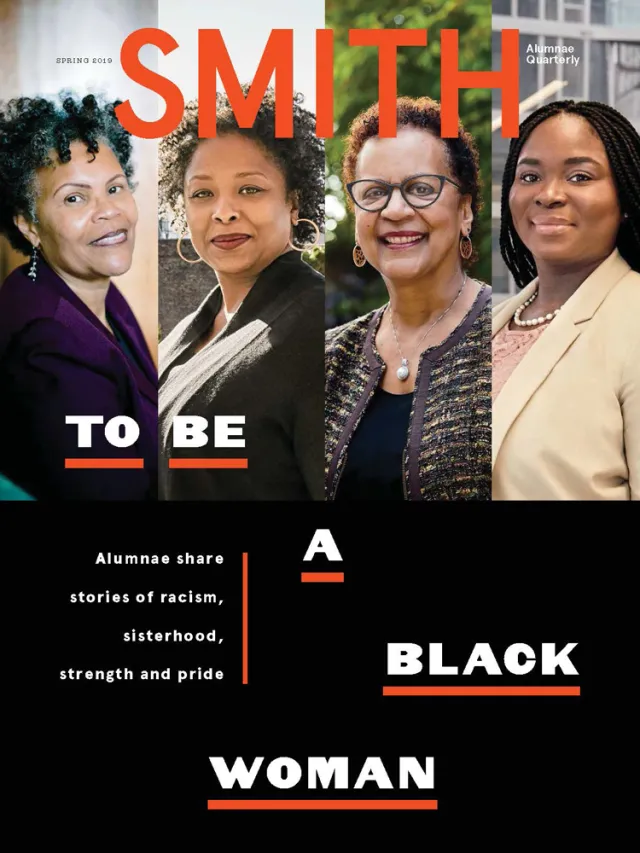‘Black Women Can Rally Voters, Influence Elections and Win’
Alum News

Published March 12, 2019
In my book, Follow the Leader, I make the case for more women getting involved in the political process on some level, whether it’s volunteering or running for office. More diversity yields better policy outcomes.
So I feel a sense of progress when I see African American women and other women of color from all walks of life becoming politically engaged and running for office in greater numbers and winning. This action, in turn, creates demand for diverse campaign managers, diverse fundraisers, diverse political advisers, diverse professional political staff, diverse communications directors and so on. It forces the major political parties to become more diverse, not because it is the right thing to do, but because it is the pragmatic thing to do.
At the early stages of their campaigns, many black women are considered long-shot candidates because they do not have the role models, the institutional knowledge or the support of their parties and donors. But when they win their primaries (as did Ayanna Pressley in the Massachusetts Seventh Congressional District race) and when their get-out-the-vote efforts are successful (as was the case in the U.S. Senate race between Doug Jones and Roy Moore) they prove that black women can rally voters, influence elections and win.
As we welcome more diverse candidates into the political arena, we need to be careful not to let our own internalized racism detract from our larger goals. Sometimes black women can be overly critical of one another in ways that do not benefit themselves or the greater good. Take the case of Stacey Abrams, the 2018 Democratic gubernatorial candidate in Georgia. By all metrics, Abrams was supremely qualified. Spelman- and Yale-educated, practicing attorney, former minority leader in the George State House, upstanding citizen and overall great human being. Yet, black women—and others—focused on her hairstyle, her weight and her marital status instead of her ability to lead a state.
Sometimes black women can discount themselves before anyone else has the chance to do so. Likewise, sometimes black women can view themselves as having to be overly masculine. The prevalence of single-parent families in our communities has required black women to be both mother and father, female and male, in many households. This is not a comment about gender identity. This is an observation about black women historically not having the freedom—because of systemic oppression—to just be. My greatest hope for the next generation of black women is that we will try to love ourselves and celebrate each other in a greater way.
Stephanie Mickle ’94 is the CEO of Mickle Public Affairs Agency, a political consulting firm in Washington, D.C.
This story appears in the Spring 2019 issue of the Smith Alumnae Quarterly.
SMITH ALUMNAE QUARTERLY

To Be a Black Woman: Alumnae Share Stories of Racism, Sisterhood, Strength and Pride
Deborah Archer ’93, “I’ve Picked a Lane. It’s Racial Justice.”
Billy Dean Thomas ’14, “I Felt Like I Was Being Tokenized”
Caroline Clark ’85, “I Am Not Black or a Woman. I’m a Black Woman”
Charlise Lyles ’81, “Who came to soothe my soul? All my Black sisters”
Lori Tharps ’94, “I Yearned for a Comfort and Confidence in My Blackness”
April Simpson ’06, “If we listen to how others define us, we remain stuck” Q&A with Sandra Williams ’75, senior vice president at CBS Television
Deanna Dixon ’88, “I’m Proud That Our Students Hold Us Accountable”
Joyce Young ’75, “Challenging the Status Quo by Writing My Truth”
“What Excites You, Gives You Joy, Gives You Hope About Black Women in the World Right Now?
Sabine Jean ’11, “Am I the Only Black Person in Here?”
Vickie Shannon ’79, “Racism Is Their Problem—Not Yours”
Photograph by Maya Darasaw